Trade
Latest

ZTE clears last major hurdle to lifting US export ban
ZTE is almost done meeting the US' conditions for lifting an export ban... almost. The Chinese mobile and telecom gianthas signed an escrow agreement with the Commerce Department that represents the last major hurdle before it can get back to business as usual. As soon as ZTE deposits $400 million into the escrow, the US will let ZTE use American exports under a 10-year suspended denial order. The company's temporary waiver ends on August 1st, so you can expect the money to arrive within a couple of weeks.

US says ZTE can resume limited business while sanctions are debated
The Trump administration has handed ZTE another lifeline, Bloomberg reports, allowing it to resume certain business activities while US lawmakers decide how to deal with the company going forward. In April, the US Commerce Department banned ZTE from working with US companies after the company shipped US-made parts to Iran and North Korea -- in violation of US trade sanctions -- and then lied about giving the executives involved with those deals large bonuses. Though the Trump administration is looking to offer ZTE a reprieve, some members of Congress would like to see certain sanctions stay in place. And while the two sides try to work that out, ZTE will be allowed to keep providing some services.

US targets Chinese tech with a 25 percent tariff
Donald Trump has slapped a 25 percent tariff on $50 billion worth of Chinese goods, significantly ramping up trade tensions between the nations. The tariff applies to "industrially significant" goods in sectors like aerospace, information tech, robotics and machinery, but not on consumer goods like smartphones or TVs. "The United States can no longer tolerate losing our technology and intellectual property through unfair economic practices," Trump said in a statement.
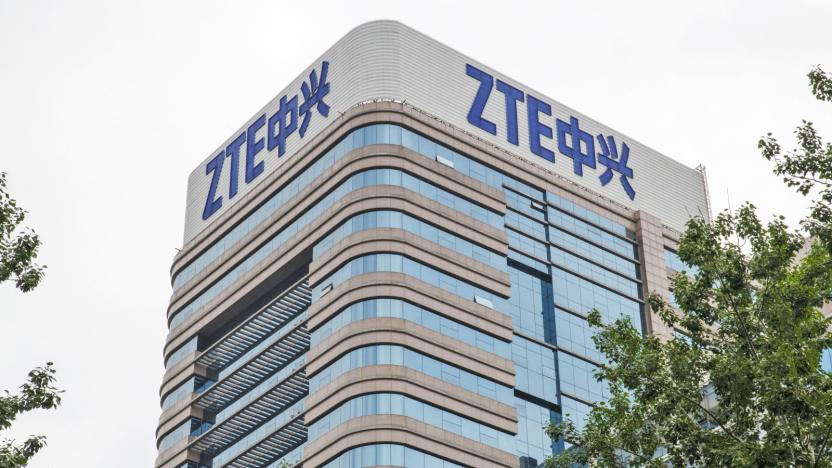
ZTE will pay $1 billion fine to beat US export ban
Tensions between the US government and Chinese smartphone maker ZTE seem to have abated, at least temporarily. US Commerce Secretary Wilbur Ross told CNBC this morning that the government has "struck a deal" with ZTE to end trade sanctions. The deal includes a $1 billion penalty and a US-picked compliance department that will embed within the company and monitor it going forward. More than that, within the next 30 days, ZTE will have to install a new board of directors and executive suite, whom the compliance committee will report to directly.
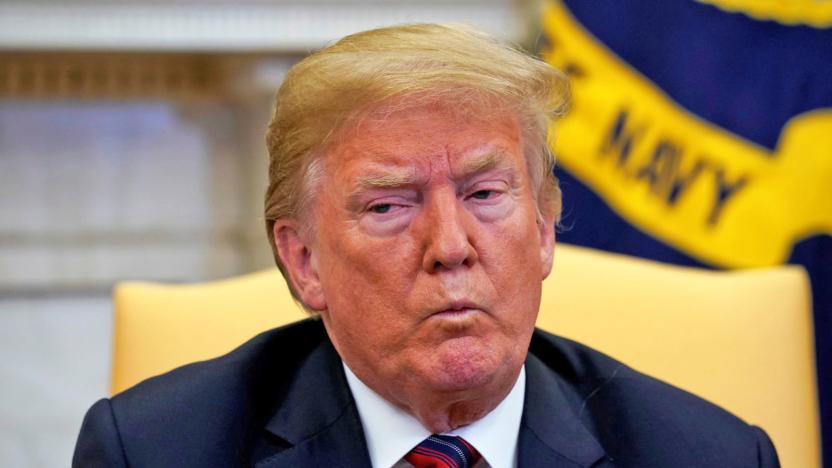
White House moves forward with China tariffs, but offers few details
Trump had been threatening to get tough on trade since the campaign trail, and back in March, he introduced tariffs on up to $60 billion Chinese imports. The fees were intended to primarily punish the country for not cracking down on intellectual property theft from American companies. Today, the White House announced it's going through with a 25 percent tariff on $50 billion worth of goods, and will release a final list of covered items by June 15th.

Trump administration tells Congress it has deal to save ZTE
The US government should soon act on its promise to give ZTE another chance following its revived export ban. The New York Times has learned that the Trump administration has informed Congress of a Commerce Department deal that would let ZTE take American exports as long as it accepted new penalties. It would have to pay a "substantial" fine, shake up its management team and hire American compliance officers to keep it on the straight and narrow.

ZTE faces bleak future after US ban prevents it from making phones
ZTE's future is increasingly murky after the company's main business ground to a halt. The Chinese firm is unable to make its smartphones after the US blocked it from working with American suppliers, most notably Qualcomm. ZTE has appealed the seven-year export ban, which the US government revived last month.
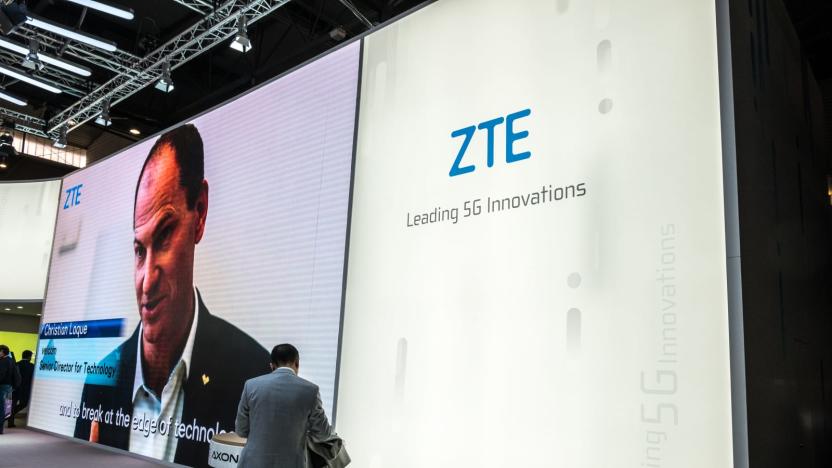
ZTE faces revived US export ban over false statements
When the US Commerce Department slapped ZTE with $1.19 billion in penalties for illegally shipping telecom gear to Iran and North Korea (and making false claims about it), it offered a reprieve: it would suspend a seven-year export ban as long as the Chinese company honored an agreement and didn't break the rules again. Apparently, ZTE might have blown its chance at a break. Department officials have revived an order banning ZTE from exporting US products after accusing the company of lying about punishing those involved in the scandal.

Consumer tech lobbyist calls China tariffs a 'poison pill'
The White House might argue that its proposed tariffs on Chinese tech would punish the harvesting of American intellectual property while preserving the US economy, but don't tell that to the Consumer Technology Association's Gary Shapiro. The industry lobbying group CEO has issued a statement describing the tariffs and the likely Chinese response as a "poison pill" to production, the "innovation economy" and customers' wallets. Instead, he suggested that the US slap China-style requirements (not necessarily joint ventures) on foreign companies while pushing for greater transparency, competition and respect for patents.

US' proposed China tariffs would target robotics and satellites
The US Trade Representative has published the list of Chinese products that would be subject to its proposed tech tariffs, and there are a few clear themes. The move would hike the costs of about 1,300 products, including industrial robots, communication satellites, spacecraft and a slew of semiconductors.The aim, as before, is to punish China for allegedly goading American companies into transferring their patents and technology to Chinese firms for the sake of claiming economic superiority.

Trump's Chinese tariffs could have a big impact on the tech industry
Trump has shouted about weaponizing trade since the campaign trail, but this year he's put it to action, committing to solar tariffs back in January that endangered US jobs. This afternoon, Donald Trump signed an executive memorandum to enact tariffs on up to $60 billion worth of imports from China, including products in the tech sector. It is "the first of many" actions, Trump reportedly said as he signed it. China immediately fired back by claiming it would retaliate and "defend its legitimate rights and interests" if the US imposes those restrictions, according to a Ministry of Commerce statement.
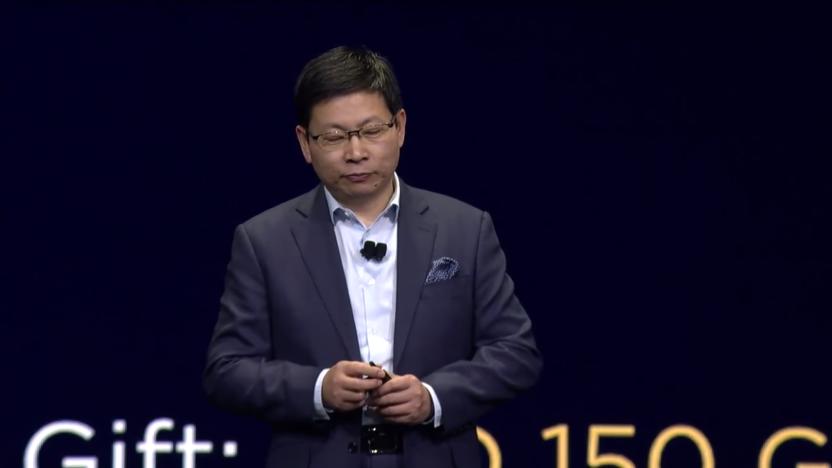
Huawei and its peers won't win over the US without trust
Standing in front of a slide simply titled "Something I want to share," the CEO of Huawei's consumer product division is about to break tradition. Richard Yu is going to directly address the reported partnership with AT&T that fell through at the last minute, pulling back the curtains, ever so slightly, on a business that is largely conducted behind closed doors. The Chinese electronics company recently overtook Apple as the world's second-largest smartphone maker in sales, but it still struggles to gain the approval of the American public.

Climate change could prevent food getting around the world
Climate change is bad news for basically every facet of human existence and now it's set to literally hit us in the gut by threatening global food supplies. According to a new report by leading think tank Chatham House, global warming is on course to produce more violent storms and increased flooding, affecting both crop yields and global trade routes.
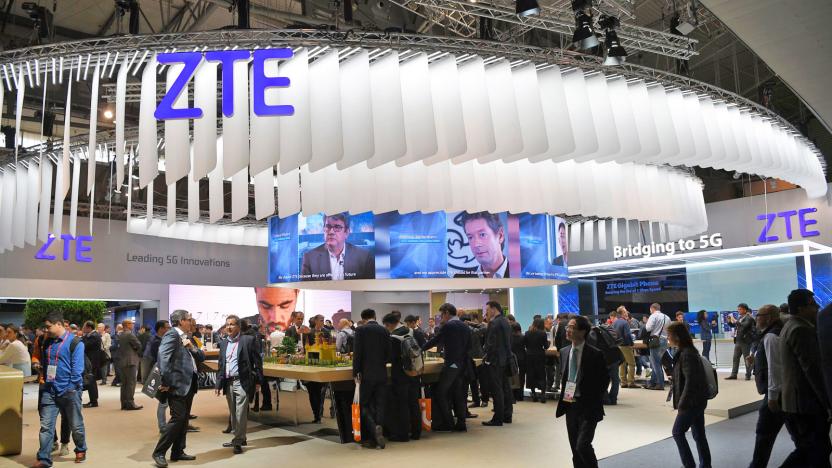
ZTE will pay $1.19 billion for violating US trade sanctions
ZTE is still feeling the pain from its alleged violation of US trade sanctions against Iran and North Korea. The Chinese tech giant has reached an agreement with the Commerce Department to both plead guilty to violation charges and pay a total of $1.19 billion ($892 million in the Iran case) as a penalty. That's a stiff cost, but ZTE didn't have much choice. The US' sanctions against the company, suspended while the two sides negotiated a deal, would have crippled its business by largely denying access to crucial American parts like Qualcomm's mobile processors.

Blockchain gets its first test with international trade
Some financial gurus are convinced that blockchain (the underlying tech behind bitcoin) is the future of business, and they might already have some proof. The Commonwealth Bank of Australia and Wells Fargo have conducted the first international, inter-bank trade deal to use blockchain for the transaction. It was a relatively modest experiment that shipped $35,000 in cotton from Texas to China, but it demonstrated the advantages of taking humans out of the equation. The deal included smart contracts that automatically sent payments and transferred ownership as the cargo reached certain locations. The companies involved didn't have to waste time sending documents, processing money or worrying about potential fraud.

New stock exchange fights unfair online trading
Some (such as The Big Short author Michael Lewis) see high-frequency, algorithm-based stock trading as a serious threat to the economy. There's a concern that big trading firms are cornering the market by paying for ultra-fast connections that give them unfair advantages, such as front running (exploiting knowledge of advance orders from customers) and otherwise closing transactions before most rivals. Those financial heavyweights might not get to abuse the system if IEX has its way, though. It just opened a US stock exchange that aims to prevent these computer-driven attempts to game the system.

Facebook and the folly of self-regulation
There's a whole bunch of content that you aren't allowed to post on Facebook. Threats against public figures and other users, claims of imminent self-harm, harassment and bullying (in theory, at least) and the purchase, sale or trade of regulated goods like drugs and weapons. What's more, Facebook made a subtle change to its Community Standards back in January, effectively banning the peer-to-peer sale of firearms, ammo and explosives. Firearm shops and online retailers are still allowed to promote offline sales on Facebook -- assuming all applicable laws and regulations are met -- but private citizens can no longer offer their own weapons on the site. While this is a commendable policy shift on FB's part, the site's enforcement of the new rules has been spotty at best.
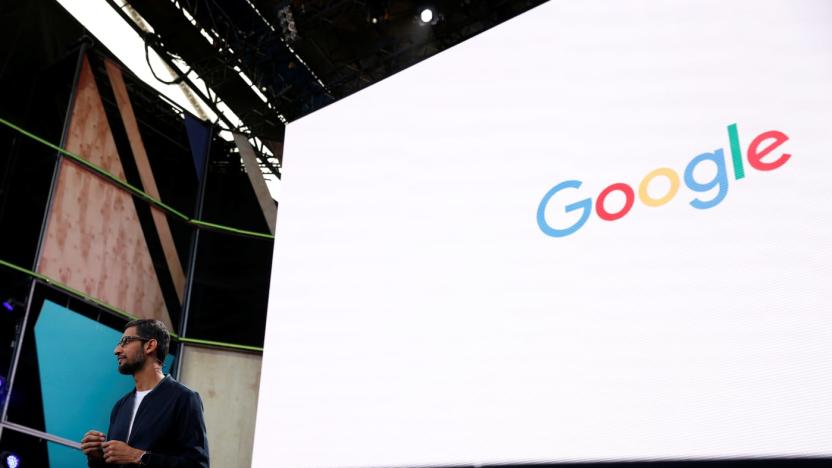
Google lends support to the controversial Trans-Pacific Partnership
The Trans-Pacific Partnership (TPP) is a wide-ranging and controversial trade agreement between 12 countries that President Obama has strongly supported throughout its creation. Today, he received a major ally in the form of Google -- the company endorsed the plan in a blog post. "We hope that the TPP can be a positive force and an important counterweight to restrictive Internet policies around the world," writes Google SVP and general counsel Kent Walker. "Like many other tech companies, we look forward to seeing the agreement approved and implemented in a way that promotes a free and open Internet across the Pacific region."

US to give ZTE a break on tech exports
ZTE might not be cut off at the knees by US export restrictions... at least, not yet. An unnamed Commerce Department official tells Reuters that the American government will temporarily lift those restrictions in return for ZTE's willingness to come to terms, including an agreement to abide by unknown "binding commitments." It's reasonable to presume that ZTE won't be selling US equipment to Iran, which is what got it into hot water in the first place.

ZTE faces restrictions on using US technology
Chinese companies already have a hard time doing business with the US (mostly over spying fears), and it's about to get worse. Reuters sources understand that the US Commerce Department is about to slap ZTE with restrictions on what it's allowed to import from its American suppliers. From March 8th onward, those companies will reportedly need to apply for export licenses to ship anything to ZTE, and those grants will "generally be denied." The move would be punishment for allegedly breaking export rules by shipping US tech to Iran.









